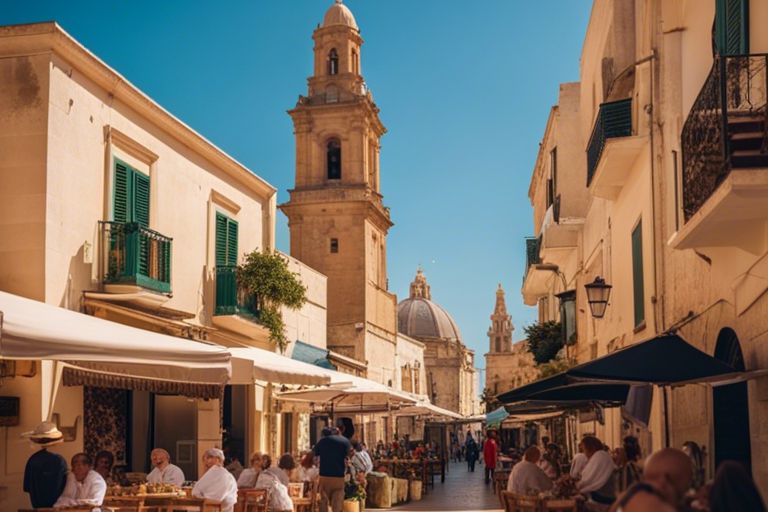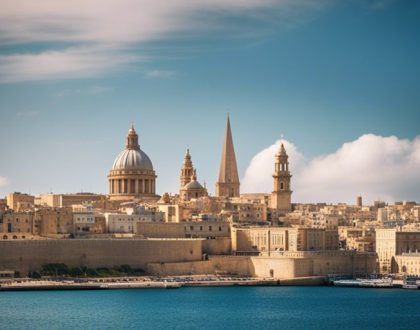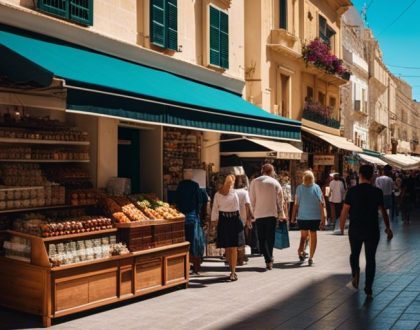Local Life in Malta – A Detailed Guide

Traveling to Malta offers a unique opportunity to immerse yourself in the local way of life. From the bustling markets to the serene beaches, this Mediterranean gem has a lot to offer. Understanding the local customs, traditions, and way of life can truly enhance your experience on this beautiful island.
Understanding Maltese Culture
Before stepping into the local life in Malta, it’s crucial to understand the unique culture that shapes the identity of the Maltese people. With a rich history influenced by various civilizations, Malta’s culture is a fascinating blend of traditions, beliefs, and values that have been passed down through generations.
Brief Historical Overview
An island located in the heart of the Mediterranean, Malta has been a crossroads of civilizations for centuries. From the Phoenicians and Romans to the Arabs and Normans, each culture has left its mark on the Maltese islands. However, it was the Knights of St. John who played a significant role in shaping Malta’s identity during the 16th century. The legacy of their rule can still be seen in the stunning architecture and cultural landmarks that dot the Maltese landscape.
Cultural Customs and Etiquette
Culture is deeply rooted in the day-to-day life of the Maltese people. Family plays a central role in Maltese society, with gatherings and celebrations often revolving around food and shared experiences. When visiting a Maltese household, it is customary to bring a small gift as a token of appreciation for their hospitality. Additionally, the Maltese are known for their warm and welcoming nature, so don’t be surprised if you are invited to join in on a conversation or meal with locals.
Customs such as these highlight the strong sense of community and unity that is prevalent in Maltese culture. It is important to respect local traditions and show appreciation for the customs that make Malta a truly unique destination.
Types of Local Housing
Even though Malta is a small island, it offers a diverse range of housing options for locals. From traditional Maltese townhouses to modern apartments and condominiums, there is something to suit every lifestyle and budget. Understanding the different types of local housing can help you choose the right option for your needs.
- Traditional Maltese Townhouses
- Modern Apartments and Condominiums
- Farmhouses and Villas
Traditional Maltese Townhouses
Local life in Malta is often centered around traditional Maltese townhouses, which are typically narrow with high ceilings and a central courtyard. These townhouses are full of character and charm, with intricate detailing on the facades and traditional Maltese balconies. Families have been living in these townhouses for generations, preserving the unique architectural heritage of the island. This type of housing may require renovations to modernize amenities while preserving the historical features.
Modern Apartments and Condominiums
Any local looking for a more contemporary living space in Malta can opt for modern apartments and condominiums. These properties offer all the conveniences of modern living, including open-plan layouts, balconies with sea views, and communal facilities such as swimming pools and gyms. The demand for modern apartments and condominiums has been on the rise in recent years, especially among young professionals and expats looking for a comfortable and stylish living space.
Understanding the differences between townhouses, apartments, and condominiums can help you make an informed decision when choosing your next home in Malta. Townhouses offer a traditional experience with historical charm, while modern apartments and condominiums provide contemporary living with all the amenities you need for a comfortable lifestyle.
Farmhouses and Villas
Townhouses in Malta are not the only option for locals looking for a unique living experience. Farmhouses and villas offer a more spacious and secluded lifestyle, ideal for those seeking privacy and tranquility. These properties are often located in the countryside, surrounded by lush gardens and stunning views of the Mediterranean Sea. For instance, some farmhouses have been renovated to offer modern amenities while retaining their traditional architectural elements, providing the best of both worlds for residents seeking a blend of history and comfort. This type of housing is particularly popular among those looking for a luxurious and serene retreat away from the hustle and bustle of urban life.
Local Cuisine and Dining
All visitors to Malta should take the opportunity to indulge in the local cuisine, which reflects the island’s rich history and diverse influences. Maltese dishes are a delightful blend of Mediterranean flavors, with a unique twist that sets them apart from other regional cuisines.
Exploring Maltese Dishes
Dining in Malta is a true culinary adventure, with a plethora of traditional dishes to sample. Some must-try Maltese specialties include fenkata (rabbit stew), pastizzi (flaky pastry filled with ricotta or mushy peas), and ftira (a local sandwich made with crusty Maltese bread). These dishes offer a glimpse into the authentic flavors of Malta and are best enjoyed at local restaurants and street vendors.
Tips for Enjoying Authentic Maltese Cuisine
When dining in Malta, follow these tips to savor the true flavors of the island:
- Try local restaurants for an authentic experience
- Sample traditional Maltese dishes like pastizzi and lampuki pie
- Don’t miss out on Maltese wines, which complement the cuisine perfectly
After indulging in the local cuisine, you’ll have a deeper appreciation for the culinary traditions that make Malta unique.
Step-by-Step Guide to Making Pastizzi at Home
| Ingredients | Instructions |
| Puff pastry dough | Roll out the dough and cut into small squares |
| Ricotta or mushy peas filling | Place a spoonful of filling on each square and fold into a triangle shape |
| Egg wash | Brush the pastizzi with egg wash and bake until golden brown |
Even if you’re not in Malta, you can still enjoy the taste of pastizzi by making them at home. This beloved Maltese snack is perfect for sharing with friends and family, and making them yourself adds an extra layer of authenticity to the experience.
Transportation: Getting Around Malta
Despite being a small island nation, Malta offers a variety of transportation options for residents and visitors to navigate its beautiful landscapes and bustling cities.
Modes of Public Transportation
The main modes of public transportation in Malta include buses and ferries. The public bus system is a popular choice due to its extensive network covering most of the island. Ferries are commonly used for traveling between the main island of Malta and its sister island, Gozo.
Factors to Consider When Renting a Car
On the other hand, renting a car in Malta can provide greater flexibility and convenience, especially for exploring off-the-beaten-path destinations. However, there are a few factors to consider before renting a car in Malta.
- Insurance coverage: Make sure to understand the insurance options available.
- Driving on the left side: Malta follows left-hand traffic rules, so be prepared for this change if you’re used to driving on the right.
- Parking availability: Parking can be challenging in some areas, so plan accordingly.
- The rental car must be returned with a full tank of gas.
Tips for Navigating Local Roads
With narrow streets, winding roads, and occasional traffic congestion, navigating the local roads in Malta can be a bit challenging for newcomers. However, with some tips in mind, you can make your driving experience smoother and more enjoyable.
- Recognizing road signs: Familiarize yourself with common road signs and markings to navigate effectively.
- Using roundabouts: Roundabouts are common in Malta, so learn the rules of usage to avoid confusion.
- Observe speed limits and be cautious of erratic driving behaviors.
This detailed guide on transportation in Malta will help you make informed decisions on how to get around the island efficiently and safely. Whether you choose public transportation or opt for a rental car, being aware of the local transportation options and regulations is important for a smooth travel experience in Malta.
Leisure and Entertainment
Keep your fingers on the pulse of local leisure and entertainment options in Malta to fully immerse yourself in the vibrant culture of this island paradise. From popular tourist hotspots to hidden gems off the beaten path, there are endless opportunities to discover and explore in this Mediterranean gem.
Pros and Cons of Popular Tourist Hotspots
| Pros | Cons |
| Beautiful scenery | Can be overcrowded |
| Plenty of amenities | Prices can be high |
| Easy access to transportation | Lack of authentic local experience |
| Wide range of dining options | Tourist traps |
Little known to many visitors, exploring popular tourist hotspots in Malta can have its advantages and disadvantages. While the lively atmosphere and convenience are appealing, the potential drawbacks of crowds and inflated prices can detract from the overall experience. Understanding these pros and cons can help you make informed decisions during your travels.
Hidden Gems: Off-the-Beaten-Path Activities
Hotspots may offer tantalizing glimpses into Maltese culture, but wandering off the well-trodden path can lead to unforgettable experiences. Discover hidden gems in Malta that are not on the typical tourist radar and uncover unique cultural insights and breathtaking natural beauty that are off the beaten path. From quaint villages to secluded beaches, these hidden treasures are waiting to be explored.
For instance, venturing into the labyrinthine streets of Mdina, known as the Silent City, offers a truly atmospheric experience as you step back in time to medieval Malta. Explore the winding alleys and historic landmarks of this ancient walled city, and soak in the majestic views from its ramparts. These hidden gems provide a more authentic and intimate glimpse into the local way of life, away from the tourist crowds.
The Maltese Marketplace
Once again, we research into the heart of local life in Malta – the bustling and colorful Maltese marketplace. Visiting a marketplace in Malta is an experience that engages all your senses, from the vibrant sights and sounds to the rich aromas of local produce and spices. These markets offer a glimpse into the daily life of the Maltese people and provide an opportunity to immerse yourself in the culture of this beautiful Mediterranean island.
Shopping for Local Goods
Some of the best items to look out for in the Maltese marketplace include handmade lace, intricate filigree jewelry, locally-produced honey, preserves, and olive oil. These unique items showcase the craftsmanship and traditions that have been passed down through generations on the islands. Bargaining is common in the markets, so don’t be afraid to negotiate prices with the friendly vendors to secure the best deal on your souvenirs.
Step-by-Step Guide to Haggling in Open Markets
Haggling is a common practice in Maltese markets, and learning how to negotiate can enhance your shopping experience. Here is a step-by-step guide to haggling effectively in the open markets of Malta:
| Step 1 | Initiate the Bargain |
| Step 2 | Counter-Offer |
| Step 3 | Meet in the Middle |
| Step 4 | Close the Deal |
Haggling can be a fun and rewarding experience, allowing you to interact with local vendors and potentially get a better price on your purchases.
Tips for Finding Authentic Maltese Souvenirs
Local markets in Malta are a treasure trove of authentic souvenirs that reflect the island’s unique culture and heritage. When shopping for souvenirs, keep these tips in mind to ensure you are purchasing genuine Maltese goods:
- Support Local Artisans: Look for items that are handmade by local craftsmen.
- Seek Out Traditional Crafts: Filigree jewelry, blown glass, and hand-painted ceramics are all traditional Maltese crafts to look for.
- Check for Authenticity: Look for labels or certificates that verify the item’s origins.
This will guide you in selecting souvenirs that are truly representative of the Maltese culture and traditions.
Local markets in Malta offer a vibrant and authentic shopping experience, where you can discover unique treasures and interact with friendly vendors. This is a fantastic way to immerse yourself in the local culture and bring home souvenirs that hold special meaning and memories of your time in Malta. Enjoy the lively atmosphere, embrace the art of haggling, and uncover the hidden gems of the Maltese marketplace.
Education and Learning
After settling into local life in Malta, many expats find themselves exploring the educational opportunities available on the island. Whether you are looking to pursue further studies, learn a new skill, or immerse yourself in the local languages, Malta offers a range of options to cater to your educational needs.
Overview of the Educational System
Any newcomer to Malta will find the country’s educational system to be comprehensive and diverse. From early childhood education to tertiary level institutions, Malta provides a robust framework for learning and development. The system follows a 6-5-5 pattern, consisting of 6 years of primary education, followed by 5 years of secondary education, and culminating in 5 years of tertiary education.
Language Learning: Embracing Maltese and English
Clearly, one of the unique aspects of learning in Malta is the opportunity to engage with two official languages: Maltese and English. While English is widely spoken and understood across the island, embracing the Maltese language can enhance your cultural experience and integration into the local community. Many educational institutions offer language courses to help newcomers develop proficiency in both languages, opening up a world of opportunities for communication and connection.
This rich linguistic environment provides a unique chance for expats to become bilingual, enhancing their resumes and communication skills in the process. Embracing both Maltese and English can be a valuable asset for career advancement and personal growth during your time in Malta.
Clubs and Associations for Skill Development
Overview: It is common for expats in Malta to join clubs and associations that cater to various skill development areas, such as arts and crafts, sports, or professional networking. These groups offer a valuable platform for individuals to connect with like-minded people, learn new skills, and enrich their overall experience in Malta.
It is crucial to participate actively in these clubs and associations to maximize your learning potential and networking opportunities. By engaging with others who share your interests, you can expand your knowledge base and foster meaningful connections within the local community.
Health and Wellness
Understanding the Healthcare System
System Unlike some other countries, Malta boasts a comprehensive and efficient healthcare system that provides high-quality care to its residents and visitors. The system is divided between public and private healthcare providers, with public healthcare being funded through taxation and available to all residents.
Local Health Practices and Tips
Understanding the local health practices and tips in Malta is crucial for maintaining a healthy lifestyle during your stay. Locals often incorporate traditional remedies and herbal medicine into their healthcare routines, alongside modern medical practices. The Mediterranean diet is also widely followed in Malta, focusing on fresh fruits, vegetables, fish, and olive oil.
- Hydration is key in Malta’s warm climate, so be sure to drink plenty of water throughout the day.
- Locals often use aloe vera for skin care and sunburn relief due to its soothing properties and ability to hydrate the skin. Assume that many households have an aloe plant for such purposes.
Steps to Accessing Medical Care as a Foreign Resident
Practices For foreign residents in Malta, accessing medical care is a straightforward process that ensures you receive the necessary treatment during your stay. You can choose to register with a public health center or opt for private healthcare services, depending on your preferences and needs.
Resident It is important for foreign residents to familiarize themselves with emergency contact numbers and the locations of nearby hospitals or clinics. In case of any medical emergency, dial 112 for immediate assistance.
Working in Malta
Not just a popular tourist destination, Malta is also becoming an increasingly attractive location for expats looking to work abroad. With a growing economy and a high demand for skilled workers in various sectors, the job market in Malta is vibrant and diverse. Whether you are seeking temporary employment or looking to settle down in Malta, there are plenty of opportunities available for expats.
Types of Employment for Expats
- Full-time Employment: Many expats find full-time employment in Malta in industries such as finance, gaming, and tourism.
- Part-time Employment: Some expats opt for part-time roles to have more flexibility in their schedules.
- Freelancing: Malta is also a great place for freelancers, especially in the digital and creative sectors.
- Self-Employment: Expats with an entrepreneurial spirit can start their own businesses in Malta.
- Seasonal Work: During the peak tourist seasons, there are opportunities for expats to work in hotels, restaurants, and other tourism-related businesses.
This diverse range of employment options makes Malta an appealing destination for expats looking to further their careers or explore new opportunities in a different cultural setting.
Step-by-Step Guide to Obtaining Work Permits
| Step | Description |
|---|---|
| 1 | Submit a job application and secure a job offer from a Maltese employer. |
| 2 | Apply for a work permit through Jobsplus, the public employment service in Malta. |
| 3 | Provide the necessary documentation, including proof of qualifications and a clean criminal record. |
| 4 | Wait for the work permit to be processed, which can take several weeks. |
| 5 | Once approved, you can start working for your employer in Malta legally. |
Clearly, obtaining a work permit in Malta involves several steps and can be a time-consuming process. It is vital to start early and ensure all documentation is in order to avoid any delays in starting your new job.
Tips for Adapting to the Maltese Work Environment
- Learn the Language: While English is widely spoken in Malta, learning a few basic phrases in Maltese can help you integrate better into the local work culture.
- Understand Cultural Norms: Maltese work culture may differ from what you are used to, so take the time to understand and adapt to the local customs and practices.
- Network: Building connections with locals and other expats can help you navigate the job market and find opportunities for growth.
- Be Patient: Adjusting to a new work environment takes time, so give yourself the patience and grace to adapt at your own pace.
- Embrace Work-Life Balance: The Maltese value a healthy work-life balance, so make sure to prioritize your well-being outside of work hours.
Adapting to the Maltese work environment may require some effort, but it can be a fulfilling experience that enriches your professional and personal growth in the long run.
Plus, when working in Malta, you get to enjoy a pleasant Mediterranean climate, vibrant cultural scene, and easy access to stunning beaches. However, be aware of the high cost of living and the competitive job market, which may require you to stand out among other candidates to secure employment.
Challenges and Adaptation
Many expatriates face various challenges when moving to a new country like Malta. Factors such as cultural differences, language barriers, employment opportunities, and social integration can significantly impact their overall experience in the country. Adapting to a new lifestyle and environment can be daunting, but with the right support and resources, expatriates can navigate through these challenges successfully.
Recognizing and understanding these factors is crucial for a smooth transition and a fulfilling life in Malta.
Factors Affecting Expatriate Life
- Cultural differences
- Language barriers
- Employment opportunities
- Social integration
One of the main advantages of living in Malta year-round is the opportunity to enjoy the Mediterranean climate throughout the year. The pleasant weather allows residents to indulge in outdoor activities, explore the island’s natural beauty, and relax on the stunning beaches. However, the high influx of tourists during the peak season can lead to overcrowding and increased prices for accommodations and amenities. On the flip side, living in Malta during the off-peak season offers a quieter and more serene environment, but some services and attractions may have limited availability.
Recognizing the seasonal changes and planning accordingly can help expatriates make the most of their time in Malta.
Pros and Cons of Living in Malta Year-Round
| Pros | Cons |
| Stable weather for outdoor activities | High tourist influx during peak season |
| Lower cost of living in off-peak months | Limited availability of services in off-peak season |
| Opportunity to immerse in the local culture | Less crowded beaches and attractions |
Living in Malta year-round allows expatriates to fully immerse themselves in the local culture and lifestyle. While adjusting to the slower pace of life and the laid-back Mediterranean mentality, expatriates can savor the opportunity to appreciate the beauty of the islands and build lasting connections with the community.
However, it is important to acknowledge the challenges that come with this lifestyle, such as navigating through the seasonal variations in tourism and adapting to the local customs and traditions.
Adaptation
Adapting to life in Malta requires a combination of flexibility, patience, and open-mindedness. Embracing the local way of life and being willing to learn and adapt can make the transition smoother and more enjoyable. While there may be cultural differences and language barriers to overcome, the rewarding experiences and unique opportunities that Malta has to offer make the adaptation process worthwhile.
Community Engagement
How to Immerse Yourself in Local Life
Now, if you truly want to experience the vibrant local life in Malta, there are a few key ways to immerse yourself in the community. One of the best ways is to interact with locals in their daily activities, whether it’s visiting local markets, attending cultural events, or simply striking up conversations in neighborhood cafes. By being open to the Maltese way of life, you will gain a deeper understanding and appreciation for the rich culture and traditions of the island.
Volunteering Opportunities and Community Events
Volunteering in Malta not only allows you to give back to the community but also offers a unique opportunity to connect with locals on a more personal level. There are various organizations and community centers that welcome volunteers to help with projects ranging from environmental conservation to social welfare. Additionally, participating in community events such as festivals, charity drives, and cultural celebrations can provide insight into the local customs and help you forge meaningful connections with residents.
Understanding the significance of community engagement in Malta is crucial for travelers seeking an authentic experience. By actively participating in local events and volunteering opportunities, you can gain a deeper appreciation for the Maltese culture and establish meaningful connections with the residents. These experiences not only enrich your time on the island but also contribute to the positive impact you can have on the local community. Stay open-minded and respectful towards the traditions and customs of Malta, and you will undoubtedly leave with a newfound sense of belonging.
Conclusion
Presently, Malta’s local life offers a unique blend of tradition and modernity, creating a rich tapestry of culture and experiences for both residents and visitors. From bustling open-air markets to quaint village feasts, there is always something happening to immerse oneself in Maltese daily life.
Exploring the local life in Malta provides an in-depth look into the vibrant history, diverse cuisine, and warm hospitality of the Maltese people. By delving into the intricacies of the island’s communities, one can truly appreciate the charm and allure of this Mediterranean gem.
FAQs:
What are some must-try Maltese dishes?
Some must-try Maltese specialties include fenkata (rabbit stew), pastizzi (flaky pastry filled with ricotta or mushy peas), and ftira (a local sandwich made with crusty Maltese bread).
What are the main modes of public transportation in Malta?
The main modes of public transportation in Malta include buses and ferries.
What are the factors to consider when renting a car in Malta?
Factors to consider include insurance coverage, driving on the left side, parking availability, and returning the rental car with a full tank of gas.
How can I enjoy authentic Maltese cuisine at home?
You can enjoy the taste of pastizzi at home by making them yourself. Follow the step-by-step guide provided in the article.
What are some hidden gems in Malta?
Venturing into the labyrinthine streets of Mdina or exploring secluded beaches can lead to unforgettable experiences off the beaten path.
Recommended Posts

Financial Planning for Businesses in Malta
July 1, 2024

The Ultimate Malta Shopping Guide
July 1, 2024

The Growth of Venture Capital in Malta
July 1, 2024




